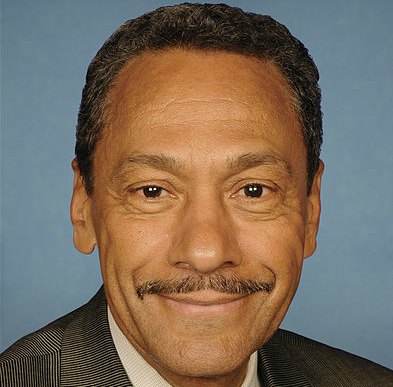
President Obama has named Melvin L. Watt (D-N.C.) as overseer of government-backed mortgage financiers Fannie Mae and Freddie Mac. But, there’s rising skepticism, on both the left and right, about the affable Carolinian. Questions abound as to whether Watt will become the next director of the five-year-old agency. Both liberals and conservatives disparage the choice.
The appointment is fraught with politics and comes after months of political pressure from the Congressional Black Caucus (CBC) to name a Black to a cabinet position and consumer advocates efforts to find a new paradigm for Fannie Mae and Freddie Mac.
Melvin Luther “Mel” Watt has served North Carolina’s 12th congressional district since 1993. An attorney from Charlotte, Watt previously served one term as a state senator and served as campaign manager for former Charlotte Mayor Harvey Gantt. Watt practiced law from 1970 to 1992, specializing in minority business and economic development law. He has also been a partner in several small businesses.
Political heft comes into play when you plug in Watt’s senior status on the House Financial Services Committee and as a former chairman of the CBC. Watt played an influential role in the passage of a financial regulatory overhaul in 2010. That legislation, however, did not address the fate of the major mortgage lenders, an issue likely to come up during Obama’s second term.
People should recognize that Watt is a national political heavyweight. Charlotte is the 18th largest city in the U.S. and the nation’s second largest financial center. The country’s largest bank, Bank of America is headquartered in Watt’s congressional district. Forty-five percent of Watt’s campaign contributions for 2009 are from corporations in the real estate, insurance and finance industries. Watt’s contributors include American Express, Wachovia, Bank of America and the American Bankers Association. Hugh McColl, former Bank of America chairman and CEO, welcomed Watt’s nomination and said he’s known Watt’s for decades.
Fannie Mae and Freddie Mac have been “honey pots” for government appointees for decades. The Federal Housing Finance Agency (FHFA) is the regulator for Fannie Mae and Freddie Mac, the two mortgage-finance companies that have operated under federal conservatorship since they were seized amid soaring losses during the 2008 credit crisis.
Watt’s salary is $179,000. The nomination comes at a pivotal moment for the government-sponsored enterprises, which back half of outstanding home loans and have returned to soaring profits after drawing more than $187.5 billion in taxpayer aid. In his role as director, Watt will also regulate the 12 Federal Home Loan Banks. The government seized Fannie and Freddie in 2008 to keep them from going bankrupt. As of March 29, the companies have received a combined $187.5 billion in bailout money. FHFA is an independent federal agency created as the successor regulatory agency resulting from the statutory merger of the Federal Housing Finance Board, the Office of Federal Housing Enterprise Oversight, and the U.S. Department of Housing and Urban Development government-sponsored enterprise mission.
This is not the first time Watt’s name has been floated for a top administrative position. The CBC lobbied to name him commerce secretary. Watt’s appointment must be confirmed by the Senate and that confirmation is not assured. A consummate politician, the 11-term congressman has been “on the Washington scene” for decades. “Mel understands as well as anybody what caused the housing crisis,” Obama said at the news conference. “He knows what it’s going to take to help responsible homeowners fully recover.” As much expertise as Watt brings to his tenure, there’s wide agreement in Washington that the government needs to shutdown Fannie and Freddie and replace their large role in the housing finance system. Between Fannie, Freddie and other agencies, the government is currently backstopping about nine out of every 10 new mortgages, stepping in to foster a functioning mortgage market as the effects of the housing downturn linger. The two financing agencies, which required a massive government bailout in 2008, have returned to profitability and are in the process of repaying taxpayers more than $100 billion.
William Reed is head of the Business Exchange Network and available for speaking/seminar projects through the Bailey Group.
